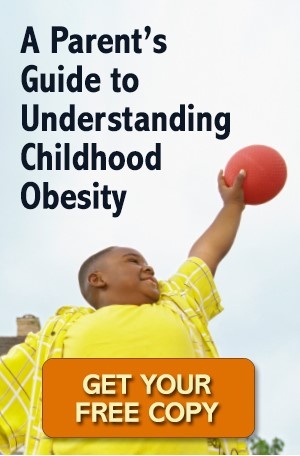 No pain no gain? No thanks! Pain is the jack of all trades in the homeostasis business. It’s your body notifying your brain there’s a problem; that something needs extra attention from you. You have several options in how you choose to manage your pain. While there are strong painkillers on the market, it’s hazardous to the human body during long term use.
No pain no gain? No thanks! Pain is the jack of all trades in the homeostasis business. It’s your body notifying your brain there’s a problem; that something needs extra attention from you. You have several options in how you choose to manage your pain. While there are strong painkillers on the market, it’s hazardous to the human body during long term use.
It’s not often the risk outweighs the benefit, especially when there are alternatives available. Information regarding the different categories of these safer alternatives, and which ones are best to use for specific types of pain, can be hard to come by. We hope this piece offers you some valuable insight to non-habit forming, effective, attainable pain medications.
Pain killers are known as analgesics in the medical world. There are different kinds of analgesics, but only two main classes: narcotic and non-narcotic (also known as non-opioid analgesic).
The two classes sometimes intermingle, meaning you can have a narcotic with added non-narcotic medication. Both classes have a purpose, can be helpful in managing pain, and also come with their own unique set of health risks/side effects. This can be a delicate balancing act when figuring out the best way to address your individualized pain management care. It’s best to use non-narcotic pain medication when possible, and there are several for you to choose from.
Non-Narcotic/Non-Opioid Pain Management
Non-opioid medications used to stave off pain are broken down into three different categories based on what they’re made from and what they do: salicylates, nonsalicylate, and nonsteroidal anti-inflammatory drugs (NSAIDs).
Salicylate
Salicylates are made from salicylic acid into variations like acetylsalicylic acid (also known as aspirin). They are the trifecta of pain medication as they can treat three issues at once:
- Pain Killer (analgesic)
- Fever Reducer (antipyretic)
- Anti-inflammatory
They’re very useful if you have the flu, a cold, or an infection that’s causing fever and body aches. You can purchase salicylates over the counter, without a prescription. You can find a list of salicylates here.
What should you take it for?
Salicylates can reduce pain associated with arthritis, inflammation, headaches, and mild nerve pain.
Who should not take them?
Salicylates also act as a mild anticoagulant, and should not be taken if you are currently on any anticoagulant medications. If you have a blood clotting disorder or a disease that causes some type of bleeding in your body (i.e. a bleeding gastric ulcer), are going to have surgery, just had surgery, or just gave birth, discuss salicylates with your doctor before taking them to ensure they are a safe option for your pain and ailment.
In rare cases, a doctor may approve the use of this drug during pregnancy, but it’s on a case by case basis. Salicylates are not recommended for children as it is thought to contribute to Reye's syndrome.
What are the signs and symptoms of an overdose?
Overdose/toxicity signs include tinnitus (ringing in the ears), dizziness, and changes in vision. Toxicity may not happen immediately. Be sure to remain mindful of your body if you’re taking salicylates regularly, and monitor yourself for these symptoms.
Nonsalicylate
Nonsalicylate analgesics are pain medications that are neither salicylates nor NSAIDs. Acetaminophen is the most well-known analgesic in this category. It’s both a pain reliever and a fever reducer. There’s a special formula for children and even infants that comes with very specific dosages to prevent accidental overdose or toxicity. It’s important to follow the dosage guidelines listed on the bottle, or to consult with your doctor before using acetaminophen regularly.
In adults, it’s not recommended to exceed 3,000 mg in a 24 hour time period, with 4,000 mg being the absolute maximum daily amount. You can purchase acetaminophen over the counter.
Dihydroergotamine mesylate (D.H.E.) is most commonly used to treat cluster headaches and migraines. DHE treats cluster headaches and migraines by constricting the blood vessels to alleviate the pulsing of vessels and arteries in head. A prescription is required for this medication. This drug should not be used by women who are pregnant or breast feeding.
What should I take it for?
Nonsalicylates are a good choice for mild to moderate pain not accompanied by inflammation. Pain from headaches, muscle aches, and mild joint aches will respond well to this type of medication (especially if the medication is taken in early onset of pain).
Who should not take them?
Acetaminophen should not be taken by anyone who has, or has had, health issues involving their liver. It’s a pregnancy category B drug, meaning pregnant women or women who are breast feeding should consult with their doctor before using this medication. DHE is not suitable for use during pregnancy or breast feeding. Consult with your doctor if you are using any type of medication that affects your blood flow, particularly to your brain, before using DHE.
What are the signs and symptoms of an overdose?
Overdose of Acetaminophen leads to irreversible toxicity. Overdose, and/or toxicity can happen from an acute overdose (one time overdose) or chronic overdosing (using more than the recommended amount for multiple doses). Toxicity is difficult to detect via symptoms, and damages primarily the liver. If you took more than the recommended dose, please contact your healthcare provider.
There is only so much you can do on your own to manage the pain. The important thing to know is that you don’t have to live with pain – there's help available at Orchard Hospital's Medical Specialty Center - Your Everyday Health Care Clinic. We have one in Gridley you can reach at (530) 846 – 9080 and one in Oroville you can reach at (530) 353 – 3332.
Our mission at Orchard Hospital is to provide our community with superior healthcare. We strive to ensure that your experience at Orchard Hospital is as pleasant and comfortable as possible. Our priority is to provide you with the care you need when you need it, with skill, compassion, and respect.



